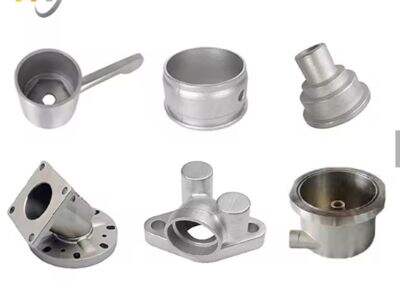O metal é um material muito popular para fazer coisas, pois há uma grande variedade de metais disponíveis. Escolher o melhor metal é especialmente importante quando se trata de um processo conhecido como matriz fundição . Pegamos o metal e o aquecemos em um local até que ele derreta, e então o pegamos e o despejamos. Em seguida, despejamos o metal derretido em uma forma especial chamada molde. E então, assim que o metal esfria, endurece na forma desejada. O tipo de metal pode afetar o desempenho, a força e a fabricabilidade da peça final.
Considerações na Escolha do Metal
Então, quando você precisa encontrar um metal para matriz fundição , há muitas coisas a considerar. Aqui estão algumas coisas para lembrar:
Preço: Este é o custo do metal para você. Diferentes tipos de metais variam muito em preço, alguns bastante caros, outros comparativamente baratos. O custo deve ser considerado, mas não deve comprometer a qualidade.
Força: Isso indica quão forte o produto final será após sua fabricação. Você deseja um metal que consiga suportar sem se quebrar.
Durabilidade: Essentialmente, este é o tempo que o produto é esperado para durar. Um produto durável significa que ele não deve ser danificado facilmente e irá durar mais sem desgaste.
Facilidade de Trabalho: Esta é a propriedade que define quão fácil ou difícil é formar e cortar o metal. Outros tipos de metais são muito mais fáceis de trabalhar, permitindo que você seja mais produtivo e tenha mais diversão no processo.
Resultado: Este é o aspecto que o produto final terá. Você pode preferir metais que possam ser polidos ou pintados para ficarem muito bonitos, alguns metais podem não aceitar acabamento bem.
Metais Frequentemente Usados na Fundição por Pressão
Há muitos tipos de ligas e metais comumente usados em fundição por pressão fundição parte . Alumínio, zinco, magnésio e cobre são apenas alguns exemplos desses metais. Cada tipo de metal possui propriedades únicas e é mais adequado para aplicações específicas:
Alumínio: Devido às suas propriedades leves e resistentes, este metal pode ser facilmente fundido por injeção. O alumínio não enferruja, então pode ser deixado sozinho por muito tempo sem se danificar. Também é fácil de moldar e cortar, tornando-o adequado para vários tipos de projetos.
Outro metal comumente usado: Zinco [1]: Ele tem grande resistência à tração e tolerância a altas temperaturas. Isso o torna uma opção adequada para itens que podem esquentar durante o uso.
Magnésio: Este é o metal mais leve entre as ligas de fundição. Por isso, muitas pessoas preferem usá-lo porque é muito fácil de moldar e cortar. No entanto, o magnésio precisa ser manuseado com cuidado em sua forma pura, pois pode pegar fogo.
Cobre: O cobre é um segundo metal, e um bastante forte, frequentemente encontrado em componentes elétricos. É bastante difícil destruí-lo e ele conduz eletricidade muito bem. O cobre é pesado e pode ser mais caro do que outros metais.
Como Escolher o Melhor
Selecionar o metal apropriado para a fundição por injeção é crucial para resultados ótimos. A escolha do metal pode economizar dinheiro e tornar o produto final ainda melhor. Também é importante considerar como os metais reagirão a várias temperaturas e se o próprio metal é fácil de trabalhar.
Vantagens e Desvantagens de Cada Metal
Conheça as vantagens e desvantagens de cada metal, pois cada metal tem suas próprias qualidades boas e ruins. Por exemplo:
Alumínio: Uma alternativa leve para muitos projetos, pode ser mais cara do que outros metais em alguns casos.
Zinco: O zinco é altamente resistente e pode suportar altas temperaturas, mas também pode ser difícil de trabalhar se você não tiver cuidado.
Magnésio: Muito leve e maleável, mas como ele pode pegar fogo, deve-se tomar cuidado extra.
Cobre: Este material é muito durável, mas pode ser mais pesado e caro do que outros.
Encontre o Melhor Metal para Você: Ajuda e Dicas de Metal
Aqui estão algumas coisas a considerar ao procurar o metal perfeito para suas necessidades específicas:
Conclusão: Considere como você deseja que o produto final fique. Este é um fator-chave a ser considerado, pois alguns metais se saem melhor com determinados acabamentos.
Força: Para começar, pense na força que o metal precisa ter para a tarefa que você tem em mente.
Trabalho de Material: Considere a facilidade ou dificuldade de trabalhar o metal.
Custo: Leve em conta quanto o metal vai custar e como isso afetará seu orçamento total para o projeto.

 EN
EN






































